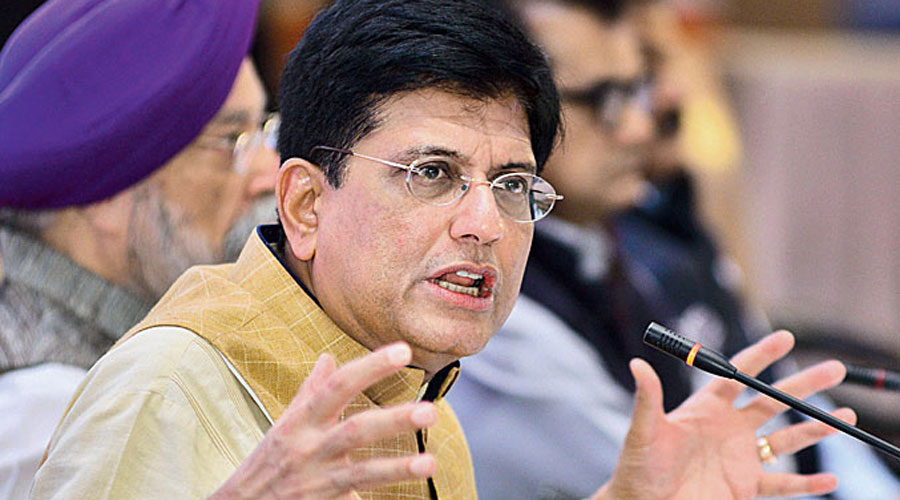The country is expected to press for a permanent solution to the issue of public stock holding of grains for the food security programme, protect the interest of fishermen and oppose the extension of customs duties moratorium on e-commerce at the 12th ministerial meet of the World Trade Organisation (WTO), which is beginning on Sunday.
The four-day 12th ministerial conference will start on June 12 in Geneva and the Indian delegation is being led by commerce and industry minister Piyush Goyal.
The meeting is taking place after a gap of four years and in the backdrop of the Ukraine-Russia war and an uncertain global economic situation.
The last time it was held in Argentina in 2017. The ministerial conference is the highest decision-making body of the 164-member WTO.
Analysts said the country is unlikely to garner major gains in the meet. It should, however, guard its position and convey its stand effectively, they added.
The main issues in the meeting include WTO response to the Covid-19 pandemic, including patent waivers; agriculture and food security; proposed fisheries subsidies agreement; and extension of the moratorium on customs duties on e-commerce trade.
New Delhi will pitch for finding a permanent solution to the issue of public stockholding (PSH) for its food security programmes. Under the PSH programme, the government procures crops such as rice and wheat from farmers at a minimum support price (MSP) and distributes them to the poor. MSP is usually higher than the prevailing market rates.
However, the WTO’s Agreement on Agriculture limits the ability of a government to purchase food at MSP. “Seeking a permanent solution is of utmost importance for India,” an expert said.
A proposal recently presented to the WTO by the G-33, supported by India, the African Group and the ACP, was rejected by many rich countries.
Fisheries subsidies
India has highlighted that developing countries not engaged in distant water fishing should be exempted from overfishing subsidy prohibitions for at least 25 years.
Members are negotiating a fishery subsidies agreement with the objective of eliminating subsidies for illegal, unreported and unregulated fishing.
Japan, Australia, New Zealand, the EU, Canada and the US are pressing for disciplining the subsidies. Nations like India and Indonesia want flexibility under special and differential treatment.
e-commerce duty
India is expected to oppose the continuation of the moratorium on customs duties on e-commerce as it is affecting developing countries. Citing the importance of developing nations to preserve policy space for their digital advancement, the official said India believes that a reconsideration of the moratorium is crucial.










